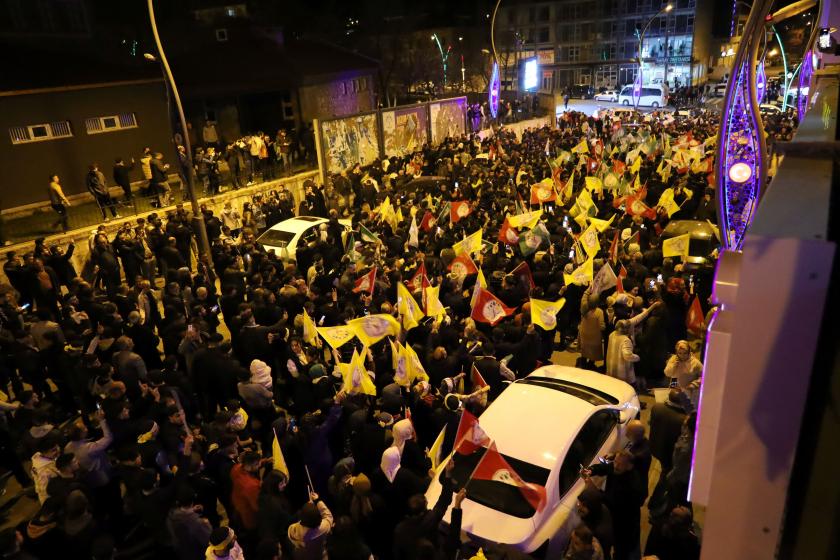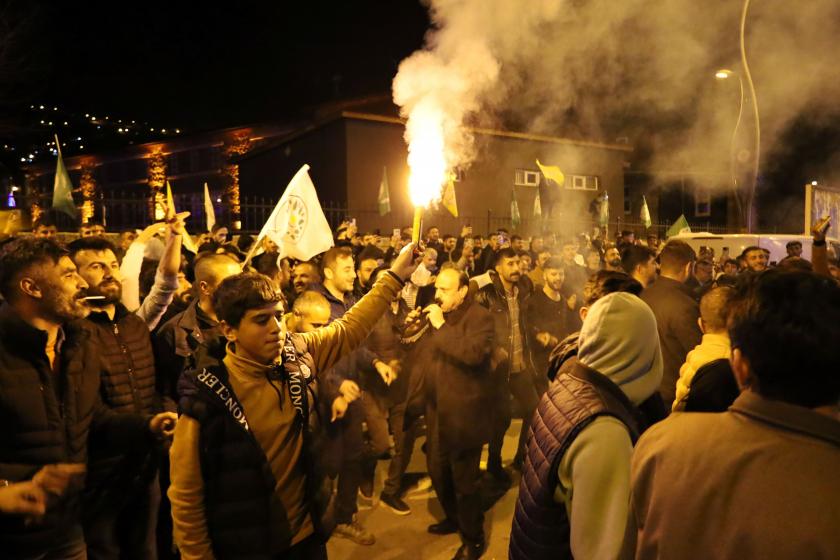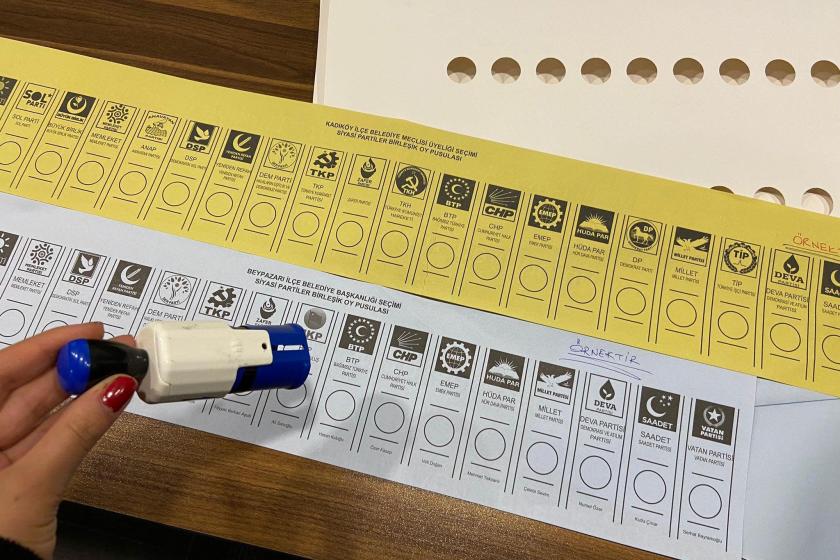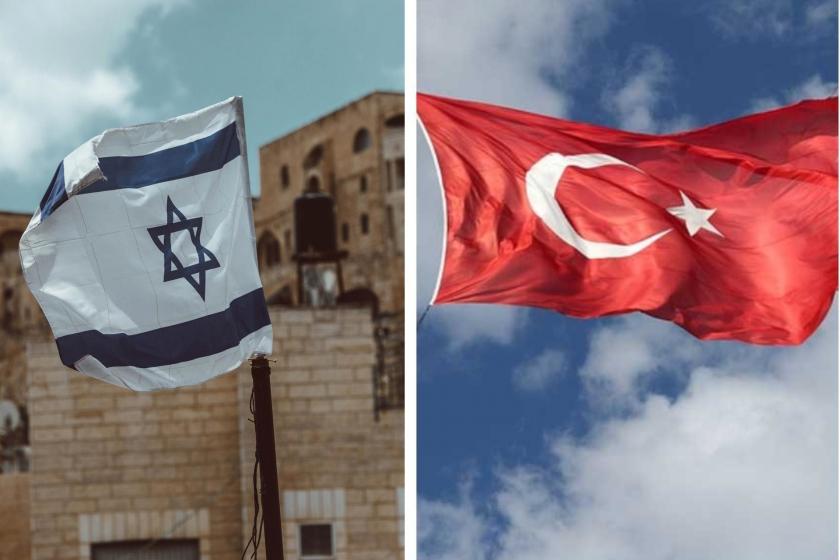Prof. Dr. Ibrahim Kaboglu: Leader, Party and State are merged
Why was the President Erdogan re-joining his party and the judicial restructuring prioritised? What should we expect in 2019?
15 May 2017 19:08
Why was the President Erdogan re-joining his party and the judicial restructuring prioritised? What should we expect in 2019?

Serpil İLGÜN
Work on the restructuring of HSYK (Supreme Council of Judges and Prosecutors) as HSK (Council of Judges and Prosecutors), one of the first articles brought to TBMM (the Turkish Parliament) following the referendum on changing the Constitution, is continued.
Over the next few days, TBMM General Council will vote to identify which 7 out of the 21 candidates will be appointed to HSK. Changes in byelaws, that need to be completed within 6 months of the official declaration of result by YSK (Supreme Election Council) and President Erdoğan taking the helm at his Party’s Congress on 21 May are next in line.
Why the need for a staggered transition? Why was the President re-joining his party and the judicial restructuring prioritised? Why are the adjustment laws squeezed into 6 months? What should we expect in 2019?
Chair of Anayasa-Der (Research Centre for Constitutional Law) and a visiting professor at Sorbonne Nouvelle, Professor Dr İbrahim Kaboğlu answered these questions. On 7 February, by the use of a KHK (decree by the power of law), Dr Kaboğlu was dismissed from his post as Head of Department of Constitutional Law at the Faculty of Law at Marmara University.
The ‘Yes’ campaign won the referendum and as expected Erdoğan became re-joined his party without delay. The transition from HSYK to HSK has been started simultaneously. Let’s start with HSYK and remind ourselves; Why is the HSYK structure changing? And what is the rush?
One of the most hotly argued topics of constitutional change had been the judiciary. Regardless of the legislative, executive and judicial powers given to the President in a way that is unseen in any other country; the transfer of parliamentary powers to one person - the President - without any attempt for justification; it is particularly striking that the higher organisation of judiciary is subordinated to the executive and especially one man. We are entering a period in which the level of authority has never been so high historically; including the period of Kanun-i Esasi. (the Ottoman Constitution)
In 2010, the Constitution was changed and the judiciary was restructured as HSYK. The new restructuring carried out now has nothing to do with that structure. This has been hardly discussed, as it was the government that changed it then and completely changing it again now are the same.
The number of members and how they will be chosen was discussed in the build-up to the referendum but what is the meaning of removing the attribution of ‘Supreme’ and changing it into HSK?
The text of the new Constitution does not give a satisfactory reason for the change but we can explain it from a wider perspective. The individual that holds absolute executive power is in a position to be the guarantor, supervisor and the inspector of all institutions. From that perspective, what is supreme is the seat of Presidency; today’s Palace. This is the most logical reason I can think of. That is to say “I am Supreme, no one below me can be!”. There is another dimension of the judicial side that is not raised. The addition of the stress on impartiality; this was not necessary but it is not an issue.
Nevertheless, it should be seen like this; yes, you made it impartial but you removed the impartiality of the President. Why give the authority to choose the higher council of the judiciary that you name impartial to a biased President? This is not an ordinary institution, it is the institution authorised to make dispositions on 15-20 thousand judges and prosecutors of the Turkish Republic. And this council will be determined, directly or indirectly, by a biased President.
The argument against the President’s membership of a party was met by the response from the government front with: “The President’s party membership does not imply a bias in appointing judges and prosecutors!”
Yes, but we then said “No, this cannot happen!” Our concerns have been realised. The President immediately became a member of his party and will soon become the leader. The ‘Constitution of 1982’ is in effect until 2019 but the President’s membership of a party and the abolition of HSYK are decrees that will come into effect imminently. There is a synchronisation in effect. Subsequently, the argument for “the President’s appointing impartial individuals even when he is a member of a party” has collapsed. We can already see the kind of selection process on judges to be appointed.
Starting with Erdoğan, the argument that was mostly propagandised in the streets by the ‘Yes’ front was removal of the two-headed executive. But how do you define the situation first of membership, followed by the leadership to come on 21 May? Is this not two-headed?
Actually, it will not even be two-headed but three-headed. Two-headed executive is not a situation that needs questioning in a democracy. The birth and development of democracy and the rise of parliamentarian regime brought with it the two-headed executive as a mechanism of representation, stability and control. It is a natural result of the democratic regime; modern democracies function within these arrangements of constitutional balance and control. From this perspective, the argument against two-headed executive was weak. The real conflict that is taking place and that needs our attention right now is the introduction of a three-headed executive in place of a two-headed one. Namely the Presidency, the leadership of the party and the leadership of the government. This, in fact, is a new ring on the chain of conflicts we have identified from different perspectives.
You say that “there is no Presidential state system, parliamentarian regime is removed in the name of presidency, but the state system that replaces it is not a presidential system”. Why not?
Political regime and the systems, regardless of whether parliamentarian, presidency or shared-presidency, all have common characteristics. Judiciary would be independent but what are the role and power of the other two organs, legislation and executive power, how do they work and end…? There are minimum standards [to be met] on these issues. The questions of their relationship and parity is secondary. From this perspective, the principle of independence of Presidency becomes prominent. The executive and the judicial are independent. As we see in the US, the President gets elected and a third of the Senate gets renewed after a while, etc.
In that case the election of the President and MPs on the same day, as in our case, does not fit anywhere?
Yes. The system introduced does not fit in any political definition, not even the Presidential system. The attributes of these are identified in books on Constitution and political science; you saying “no, it must be this” makes no difference. Regimes outside of democracy do not say “we are non-democratic”. Therefore, we do not have a Presidency here, neither do we have a “Presidential State system”. You could try and call it “Presidential government system” but there is no government. Is there a President? there is no President any more either.
The President is the head of the state and must be impartial. But if one man is the head of the state, head of government and the head of a party then that man is not a President. There is not a system either because there is not a situation in which you can say “I’m going to choose that person as a President, he will appoint two deputies and 12 ministers, and their duties are these.” Let’s say he chose 3 deputies in 2019, he can then choose 13 deputies in 2023 as there is nothing that stops him from doing this. As there is no discernible, identified situation, it is not possible to name this as a system.
To underline it all, can you identify the new system that is being set up?
We are entering a period where a Constitutional state is turned into a “Party state” and where the courts will be controlled by AKP. A system where the powers to set up this Party state are given to one person and where his party is used as a tool to establish this; a system where the individual, the party and the state are merged.



